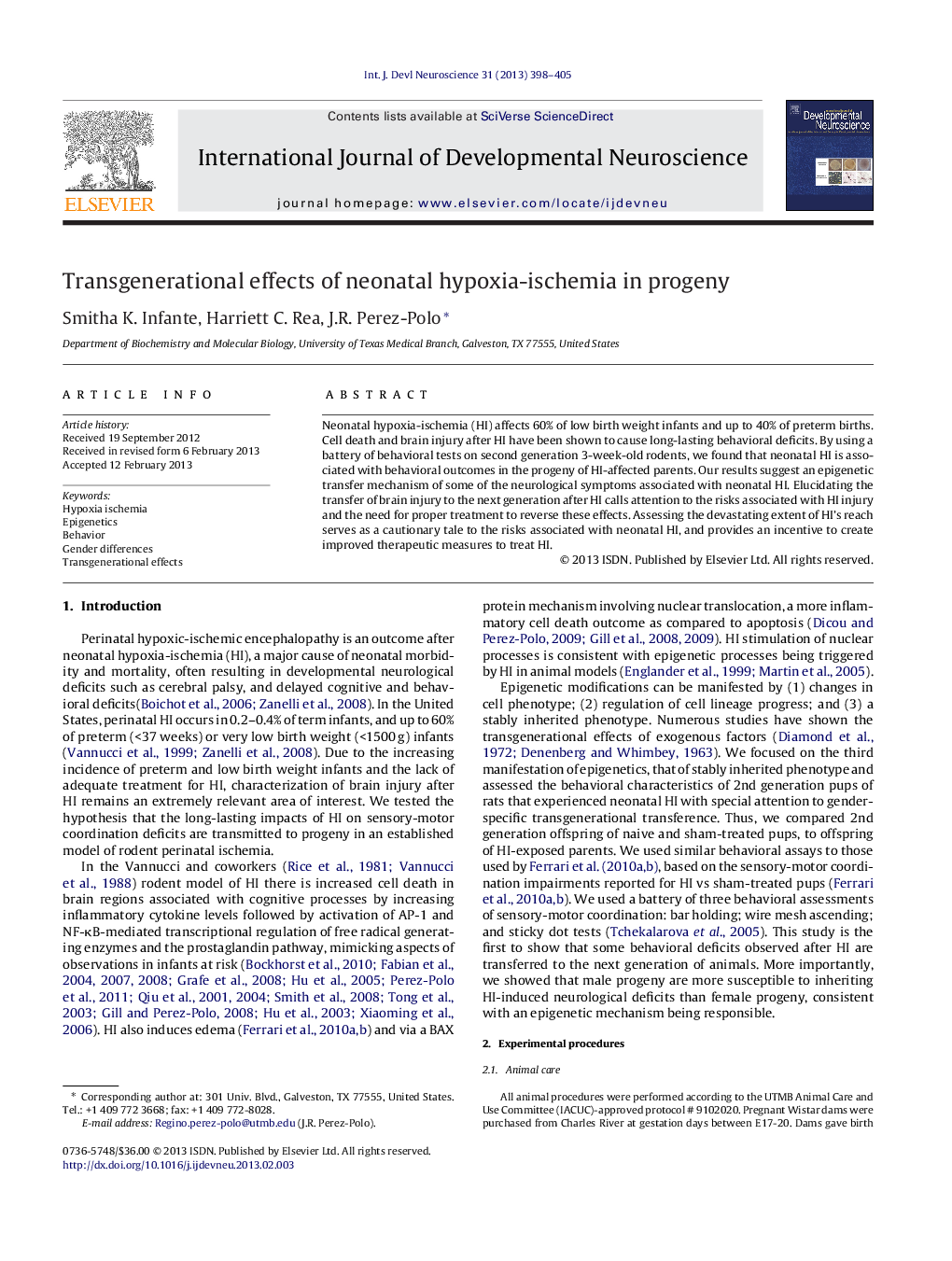| Article ID | Journal | Published Year | Pages | File Type |
|---|---|---|---|---|
| 2786142 | International Journal of Developmental Neuroscience | 2013 | 8 Pages |
Neonatal hypoxia-ischemia (HI) affects 60% of low birth weight infants and up to 40% of preterm births. Cell death and brain injury after HI have been shown to cause long-lasting behavioral deficits. By using a battery of behavioral tests on second generation 3-week-old rodents, we found that neonatal HI is associated with behavioral outcomes in the progeny of HI-affected parents. Our results suggest an epigenetic transfer mechanism of some of the neurological symptoms associated with neonatal HI. Elucidating the transfer of brain injury to the next generation after HI calls attention to the risks associated with HI injury and the need for proper treatment to reverse these effects. Assessing the devastating extent of HI's reach serves as a cautionary tale to the risks associated with neonatal HI, and provides an incentive to create improved therapeutic measures to treat HI.
► Transgenerational effects of neonatal hypoxia-ischemia on sensory-locomotor function. ► Transgenerational effects of neonatal hypoxia-ischemia transferred via male germ line. ► Neonatal hypoxia-ischemia epigenetic consequences in rat pups.
